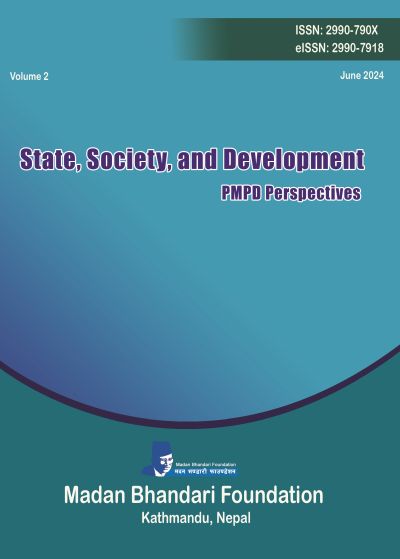Foreign Policy: From the Perspective of People’s Multiparty Democracy
DOI:
https://doi.org/10.3126/ssd.v2i01.67199Keywords:
Foreign policy, National interests, Neo-Marxist, People`s Multiparty Democracy, IdiosyncrasiesAbstract
The term “national interests” generally refers to priorities, aims, and goals that a nation-state intends to accomplish in its foreign policies and interactions with other nations. These interests might differ greatly based on the nation, its resources, history, location, and present geopolitical climate. In order to examine foreign policies, some theories are used in research papers and scholarly works. These include constructivism, Marxism, neo-Marxism, offensive and defensive realism, internal and domestic theories, and system theories. In the context of Nepal, national interests have been formed by its geopolitics. Nepal should have embraced the non-alignment strategy since ancient times and maintained cordial relations with its immediate neighbors due to its strategic placement between China and India, two Asian giants and large economies. Following the restoration of democracy in 1990, globalization and liberalization appear to have had a major impact on Nepal’s foreign policy developments. Nevertheless, the most striking deviations from Nepal’s foreign policy norms following the 1990 political change are the country’s adoption of a more liberal multiparty democracy, the dominance of Marxist political parties, and actions and beliefs of the Marxist movement. Through a multiparty electoral system, the People’s Multiparty Democracy (PMPD) is a political system that guarantees the people’s control over governmental authorities. PMPD is a political theory that combines democracy and multiparty systems. As a PMPD idealist, Madan Bhandari fought for Nepal’s national interests. In particular, he criticized modern global capitalism and unconditionally supported Nepal’s independence, territorial integrity, and sovereignty.
Downloads
Downloads
Published
How to Cite
Issue
Section
License
Once published, an article in this Journal is not permitted to publish in other journals or similar publications without the permission of the Foundation. Contents and perspectives presented in the articles in the journal are solely of the authors.




